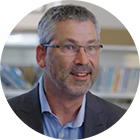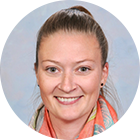This free online webinar will feature the winner and finalists of the 2023 Resilient Australia School Award, showcasing brilliant programs implementing disaster resilience education in action across the country.
Hear from guest speakers Leigh Johnson, Principal at Harkaway Primary School (VIC), Emma Wilson, Director of Middle School at Living School (NSW), Denise Hardie, Training and Development Manager at Port School (WA), and Megan Lynch, Deputy Principal at Woodridge State High School (QLD).
Educators and students will share what they’ve done at their school to strengthen disaster resilience, reduce risk and build community, through student participation and partnership for learning. You’ll also have the opportunity to ask them questions!
The Disaster Resilient Australia-New Zealand School Education Network (DRANZSEN) is a national initiative of the Australian Institute for Disaster Resilience. DRANZSEN brings together educators, emergency services, community organisations, researchers and others working with young people to develop knowledge, skills and solutions for a disaster resilient future.
Who should attend?
- School leadership teams and staff interested in reducing risk and build resilience in their local community.
- Emergency service representatives involved in youth and community education who want to share practice and collaborate with others.
- Representatives from the Department of Education, Catholic education, and the independent schools sector.
- Subject-specific teacher associations, other agencies and affiliated organisations.
- Not-for-profits, non-government and community organisations, local governments, researchers and others working with young people to develop knowledge, skills and solutions for a disaster resilient future
Guest Speakers:
 Leigh Johnson MSchLrshp, MEd (International Baccalaureate)
Leigh Johnson MSchLrshp, MEd (International Baccalaureate)
Principal, Harkaway Primary School (VIC)
Teaching has never been a ‘destination’ job for me. That’s because you never arrive. Teaching is all about learning. Learning is all about habits that make a difference. And making a difference is what hope needs in order to flourish. For over twenty-five years, I’ve been learning how to teach children to shape their world. With a couple of Masters degrees tucked under my arm, and a PhD under way, the learning continues. I’ve served as a primary school principal for the last ten years and I’m excited by the future of education, as we learn to shape it together.
 Emma Wilson
Emma Wilson
Director of Middle School, Living School (NSW)
Emma Wilson, a classroom teacher and Director of Middle School at Living School in Lismore, takes an innovative approach to education, integrating real-world issues into the curriculum to empower students. With a passion for giving students a voice and channeling their energy towards meaningful learning, Emma fosters a sense of purpose and enthusiasm in her classroom.
Emma has spearheaded several impactful disaster response initiatives, including the "Bust the Dust" drought awareness campaign, "Crane Nation" lockdown magazine, and the "Climate Change Your Tune" flood response campaign. These projects not only raise awareness about critical issues but also actively involve students in making a positive difference and responding to crises.
Her efforts have significantly increased student learning outcomes, resilience, and autonomy, encouraging them to become proactive change-makers. Emma’s commitment to education goes beyond the classroom, inspiring students to engage with the world around them and make a lasting impact on their communities.
 Denise Hardie
Denise Hardie
Training & Development Manager, Port School (WA)
Denise Hardie has over 25 years’ experience in the Community services and training sectors. Working in a range of settings including prisons, TAFE and emergency services, she is now managing the Registered Training Organisation and Vocational training of a school for at risk youth.
Denise has a passion for developing and delivering training programs that are accessible and relevant to students who have learning and life challenges.
Denise has had first-hand experience of the impacts of natural disasters in community both in her home in the Perth Hills and assisting with the Yarloop fire recovery.
A volunteer in several community-based organisations, Denise is keen to introduce the spirit of giving back to the upcoming generation of secondary school students.
 Megan Lynch
Megan Lynch
Deputy Principal – Pedagogy, Learning and Curriculum Years 10-13, Woodridge State High School (QLD)
Webinar Host:
 Margaret Moreton
Margaret Moreton
Executive Director, Australian Institute of Disaster Resilience
Margaret is the Executive Director for AIDR and brings to this role significant experience working in the government, non-government, business and the philanthropy sectors. Her career began in federal government, before she undertook community-based research at the Australian National University that identified key factors that contribute to disaster recovery and resilience. Margaret has worked in paid and volunteer roles and has operated her own private consulting business in disaster risk reduction and resilience. Following the 2019-2020 bushfires, she spent time working in philanthropy. Margaret has developed a strong reputation as a disaster resilience specialist, working to build community resilience in partnership with a broad range of stakeholders and led by communities themselves.
Together with her team at AIDR, Margaret is focussed on developing and sharing knowledge, resources, and experience across a range of sectors, to lead or contribute to efforts that enhance community and systemic resilience to natural hazards, across Australia. She has a particular passion for amplifying the voices of diverse groups who have lived experience and significant knowledge and expertise, and have previously been overlooked or not included ‘at the table’. She feels a sense of urgency about disaster risk reduction work, and strongly advocates for partnership approaches, on the basis that urgency, relationship and trust are essential elements of bringing about systemic change.


